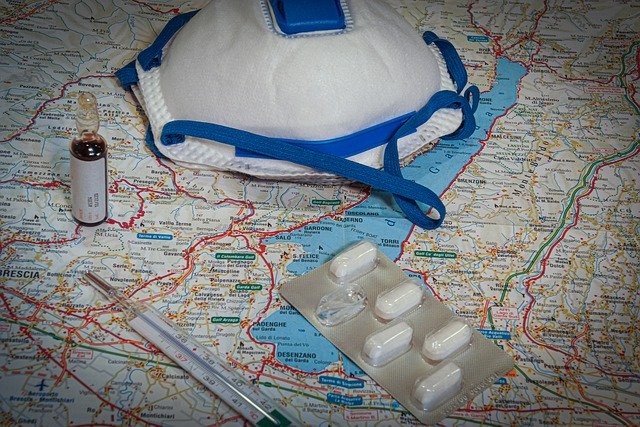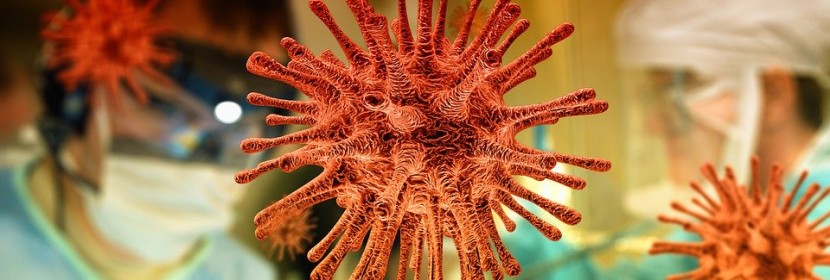
Physicians across the United States are sending the same message that not everyone who wants a test will get a test.
Dr. William Schaffner, a professor in the division of infectious diseases at Vanderbilt University Medical Center stated that "if we have all the resources in the world and if with a flick of a magic wand, we will be glad to test these people but they are not there so I'm afraid we have to prioritize."
This week, the doctors of New York City and Los Angeles County had laid out guidelines to follow to avoid testing patients except in cases where a test result would undoubtedly change the course of treatment.
The longtime adviser to the US Centers for Disease Control and Prevention, Schaffner, and chief of infectious diseases at Massachusetts General Hospital, Dr. Rochelle Walensky, told CNN who should and shouldn't get tested for the coronavirus if they are positive or not, given that there are not enough tests for everyone.
Their thoughts basically echo what was done in New York City and Los Angeles: At a time there aren't sufficient tests to fulfill their demand, they ought to be given to patients when the outcome would have any kind of effect in their consideration.
There will obviously be special cases to these classifications, and various specialists and medical clinics will have various standards. As more tests become accessible, specialists can be progressively liberal about who they test.
Choices about testing are at the discretion of state and local health departments or individual clinicians though the CDC has released some testing guidelines to follow.
New York and Washington have more specific suggestions about who should be tested first.

At Mass General, for example, for the reason for coronavirus testing, they believe somebody to be older if they're more than 70 years old, yet relying upon somebody's health status, a patient could likewise be viewed as elderly if they're in their 60s.
At Mass General, for example, the reason for coronavirus testing, they believe somebody to be considered as an elder if they're more than 70 years old, yet relying upon somebody's health status, a patient could likewise be viewed as old on the off chance that they're in their 60s. On the side note that there's no definition of what it means from being "old." The rubric underneath says 70 and older, however various doctors and hospitals will have various definitions.
People who does not need testing
If you don't have symptoms of the coronavirus like fever, coughing, and shortness of breath, you should not receive a test even if you traveled to a coronavirus hotspot. Even if you've been in close contact with someone with the coronavirus.
The doctors also noted that there's a possibility that you are infected with the coronavirus even if you don't have any symptoms.
The doctors said that even you have symptoms, you're healthy and under age 70 you should not receive a test right now because of the shortage.
Young healthy individuals with a fever and cough are recommended to go home and rest, get a lot of water; and practice social distancing; and seek medical attention if you have shortness of breath.
That last piece of guidance about looking for medical attention would be true whether you have coronavirus, flu, or some other respiratory sickness, they said.
Schaffner, using the medical term for the disease caused by the novel coronavirus said "If you're in this group, you're not in trouble. Whether you have flu or Covid-19 or some other respiratory virus, we anticipate you will do well, But should you develop any symptoms that show you're getting worse, particularly if you have any difficulty breathing, you will call us."
People who needs testing
In case you're over age 70 or have a medical condition and you have mild to moderate symptoms of coronavirus: If you're in this group doctors, would do an assessment to figure out what tests you may require, including whether you need a coronavirus test.
Walensky said "We would want to see you. You're a little more fragile, to begin with, so not just because of Covid, we would want to make sure you're OK."
Anyone who has symptoms or has been in close contact with someone who is positive of coronavirus, close contact as having direct contact with infectious excretion of someone with coronavirus, such as being coughed on, or being with someone infected person 6 feet beside for a prolonged period of time.
Schaffner and Walensky say they hope to be able to loosen up these categories and test more patients, as more tests become available.
Swabs and other medical supplies needed to perform out the test are also in a shortage of supply. In addition, doctors and medical caretakers need to put on personal protection equipment to perform out a coronavirus test, for example, gloves and n95 masks. Since that equipment is in short supply, doctors need to conserve it for the individuals who most need testing.
Walensky said, "We have to do the test, and then somebody has to process it and get it to the lab. And then somebody has to call the patients back and tell them the results. I can't see having health care facilities having that kind of manpower, maybe we'll get there, and that would be great."









